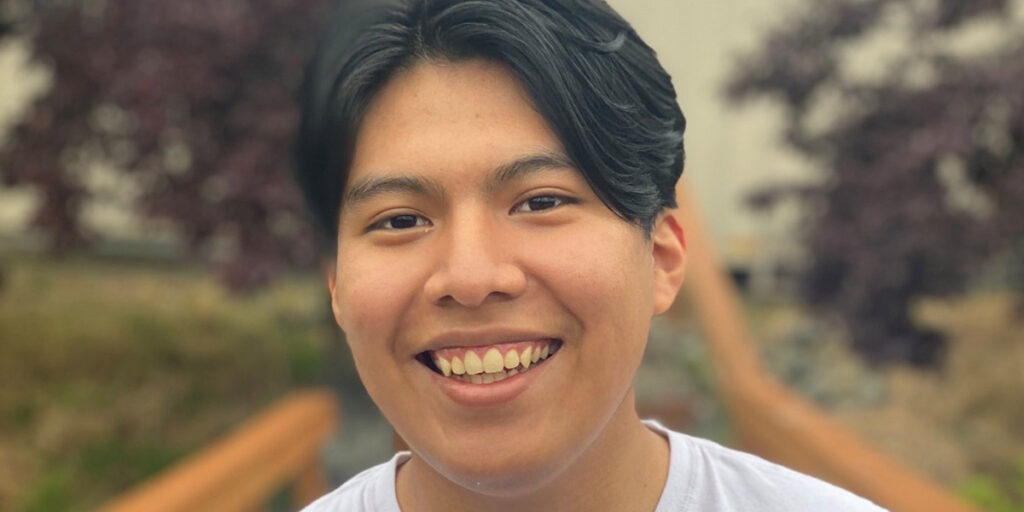story
Community Changemakers: A Conversation with Fredy Castillo, 2021 Equity and Sustainability lead intern at World Relief Seattle’s Hillside Paradise Parking Plots Community Garden

In 2017, out of a response to voiced concerns from the community, the Kent Hillside Church transformed its parking lot into a community garden and education program thanks to a program led by World Relief Seattle, a refugee resettlement and services organization, and TRFF grantee.
From pavement to green public space, the Hillside Paradise Parking Plots Community Garden located in Kent, Washington, exists to empower refugees, immigrants, and the local community to improve food access, build community, and foster economic independence. The garden is also a practice of environmental stewardship through the incorporation of a depaved parking lot, rain gardens, and water catchment systems into the garden design.
The garden hosts 50 plots, each dedicated to a family, and impacts more than 150 people from over 23 different countries every year. The garden is also used as a learning site to educate refugee children K-8 on PNW-focused environmental science topics, an area of education that often overlooks the BIPOC communities most affected by these issues.
We spoke to the garden’s Equity and Sustainability lead intern for the 2021 season, Fredy Castillo, a 17-year-old Kent resident interested in making a “really big impact” on his community, particularly among other immigrant families.
This interview has been edited for clarity.
The Russell Family Foundation (TRFF): What is your role as lead intern for the Paradise Parking Plots Community Garden?
Fredy Castillo (FC): As the lead intern, I’m helping oversee three other interns and we are teaching environmental science education to K-8 immigrant youth, using the Paradise Parking Plots as a learning site and our main focus. A typical day involves replying to emails and planning meetings with our hired experts who help us teach the curriculum properly. Some of the topics we cover include insects, animals, Native American and Indigenous Peoples, marine life, the ecosystem and more. We’re teaching immigrant youth. Our kids have a wide range of English-learning abilities, so we structure our curriculum so that no one is left out.
TRFF: What interests you the most about your role and participating in this program?
FC: I’m making a really big impact on my community in the Kent area. I’m helping with some of the regional issues related to the food desert; helping immigrants, which is really near and dear to my heart since my parents are immigrants as well. Plus, I’m learning leadership skills that will help me in the future – that’s one of the main reasons I came back to do this a second year in a row. I’ve also learned a lot about coordinating and managing this size of a project. It’s given me more responsibility than I’ve been used to before.
TRFF: Have you always been interested in environmental science?
FC: Yes, I’ve always had an interest in environmental science. In 7th grade, I dedicated my whole science project to sustainable energy, and built a mini power generator made from magnets and wires. I’m always thinking of new ways to be more sustainable and help the community.
TRFF: What does leadership mean to you?
FC: A person who inspires. A person who really sets a goal and helps others achieve it. Someone who leads by example and forges a path for others to follow.
TRFF: How does one teach or model leadership?
FC: Someone will teach leadership by putting the person in the position, where they have to take the initiative; take the first step into being a leader. They basically have to be a leader or just fail. That’s how I learned at least. I was put in the position to become a leader or not. I think the first step into basically anything is the hardest, but once you take the first step, the rest becomes easier.
TRFF: What advice do you have for your peers?
FC: I would encourage everyone to do a program where they have passion, where they actually care. I would also tell them to be open to adjusting to plans when complications arise, because that’s a big skill I had to learn. And don’t lose yourself in the commotion and the expectations of other people.
Image credit: Elisha Gill